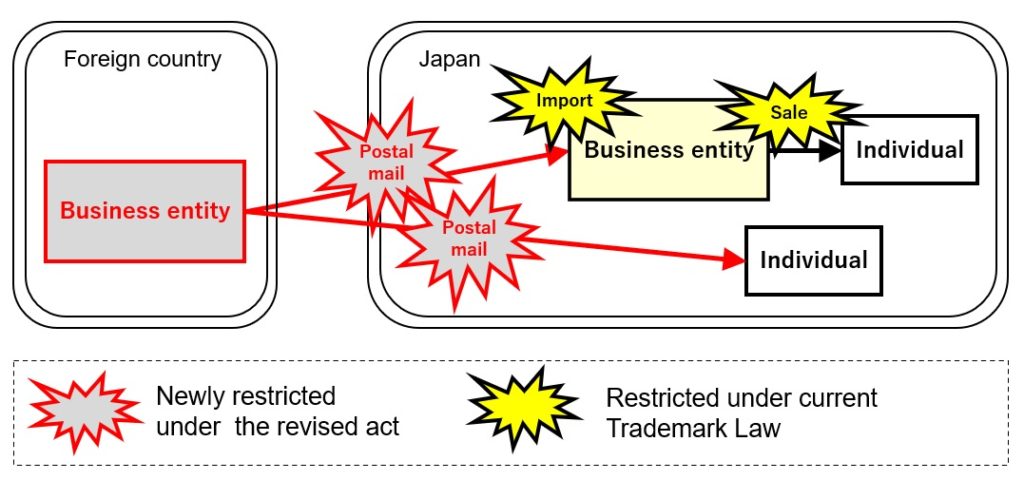The Japan Trademark Law Revision Act of 2023 (Act No. 51) passed Congress on June 7 and was promulgated on June 14. Hot topics of the revision are:
1. An individual can register his/her name as a trademark to the extent that it has acquired a substantial degree of recognition among relevant consumers of the designated goods or services
Current law provides that the name of a person is unregistrable if there is another person of the same name unless obtaining his/her consent (Article 4(1)(viii)).
Current – Article 4(1)(viii)
Trademark shall not be registered if the mark contains the portrait of another person, or the name, famous pseudonym, professional name, or pen name of another person, or famous abbreviation thereof (except those the registration of which has been approved by the person concerned)
By virtue of the revision, in the event that the name of a person has been widely recognized as a source indicator of his/her business, the individual can register his/her name without the consent of another person of the same name.
Revision – Article 4(1)(viii)
Trademark shall not be registered if the mark contains the portrait of another person, or the full name of another person (limited to that has been widely recognized as a result of actual use on goods or services of the person’s business), the name, famous pseudonym, professional name or pen name of another person, or famous abbreviation thereof (except those the registration of which has been approved by the person concerned), or the name of another person that would not meet with requirements specified by government ordinance.
It should note above revision does not apply to the name of a company (legal entity). A company can’t register its name without the consent of another company of the same name if exists.
2. A mark can be registered even if it is subject to Article 4(1)(xi) which prohibits registration of any mark identical or similar to earlier trademark registration, on the condition that the earlier trademark owner gives consent and there is no likelihood of confusion with the earlier mark as a matter of fact.
For long years, the JPO has not considered, in the course of trademark examination, consent from earlier trademark owners as a pass to open the gate for registration.
Due to a rigid examination practice, the applicant and earlier trademark owner, regardless of mutual agreement to give consent to trademark registration in Japan and other jurisdictions, were all the way obliged to temporally transfer their trademark right to either party and then take action to assign it back after the JPO granted registration of the applied mark.
By virtue of the revision, the applicant can overcome the refusal based on a conflict with earlier trademark registration in Japan by filing a letter of consent from the earlier trademark owner and the JPO examiner believes the co-existence of both marks would not cause confusion.
New – Article 4(4)
Trademark shall not be rejected under Article 4(1)(xi) provided that the applicant obtains consent from the owner of the cited mark under the article and it is unlikely to cause confusion with the cited owner and its exclusive or non-exclusive licensee when used on goods or services designated under the application.
It should note the JPO still has the discretion to reject or cancel trademark registration even after the filing of a letter of consent where they find a likelihood of confusion or actual confusion (Article 52-2).
When does the revised act come into force?
The revised act is set to become effective within a year from the promulgation date.

